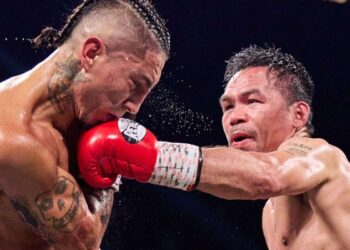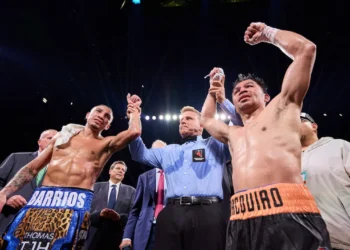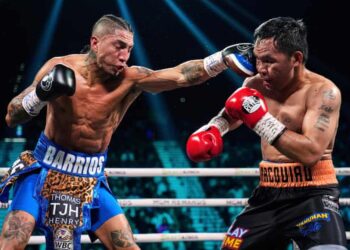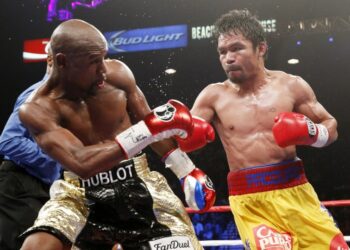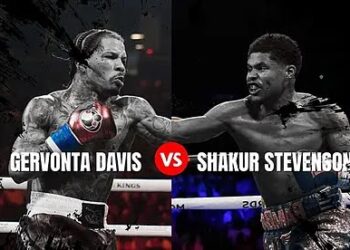In a development that has sparked debate within the sports community, boxing champion Claressa Shields publicly expressed her surprise and disappointment after losing out to college basketball star Angel Reese for a prominent sportswoman award. Shields, known as the “GWOAT” (Greatest Woman of All Time) in boxing, questioned the decision on social media, highlighting her career accomplishments and suggesting that her achievements may have been overlooked in favor of popularity or media narratives.
The award in question — given to recognize outstanding female athletes for their performance, impact, and visibility — was presented to Reese after a high-profile year in women’s college basketball. Reese, who rose to national fame with LSU’s 2023 NCAA championship victory, became one of the most talked-about athletes of the year, not just for her play on the court, but for her presence on social media and in national conversations about athlete branding, NIL (Name, Image, and Likeness) rights, and female empowerment in sports.
In contrast, Claressa Shields has had a remarkable and consistent career, though in a sport that receives far less mainstream attention than college basketball. Shields is a two-time Olympic gold medalist, a multi-division world champion in professional boxing, and has also successfully ventured into MMA. In 2023, she defended her undisputed middleweight title, continuing an undefeated professional boxing record. She has long been an advocate for women’s boxing and gender equity in combat sports, often fighting not only in the ring but also for recognition and respect in a male-dominated arena.
After Reese’s win, Shields took to social media to express her thoughts. In a now-viral post, she congratulated Reese but added, “It’s wild to me how a boxer with an undefeated record, two Olympic golds, and multiple undisputed championships can be overlooked. Not bitter — just stating facts.” Her comments quickly drew both support and criticism, igniting a broader conversation about how female athletes are evaluated for accolades.
Supporters of Shields argue that the sports media landscape tends to favor athletes in more visible and marketable sports, often at the expense of individual excellence in less-covered disciplines. Boxing, particularly women’s boxing, continues to fight for equitable coverage and commercial support. Shields’ career, they contend, represents not just dominance but historic success — the kind that should command recognition from all corners of the sports world.
On the other hand, Reese’s defenders point out that her influence goes beyond statistics. Her presence has helped elevate women’s basketball to new levels of popularity, especially at the collegiate level. Her unapologetic personality and confidence have made her a role model for young women, and her ability to turn athletic success into broader cultural relevance mirrors what many award panels are now recognizing: that influence and visibility are just as important as wins and losses.
Moreover, some suggest that the generational divide between Shields and Reese may also play a role. Reese is emblematic of a new era of athletes who are not just competitors but brands — leveraging social media, NIL deals, and public platforms to shape narratives. Awards like these may be reflecting not just athletic performance but also an athlete’s impact on culture, marketability, and relevance in public discourse.
This incident brings to light a crucial question: how should we measure greatness in women’s sports? Is it purely based on athletic dominance and championships, or should broader influence and visibility be considered equally valuable? In an age where representation and influence are key metrics of success, athletes like Reese may be viewed through a different lens than traditional champions like Shields.
Both athletes represent powerful forces in their respective fields, and both have made invaluable contributions to women’s sports. Shields’ frustration is understandable, particularly in a sport that often places women on the periphery. At the same time, Reese’s win reflects a shift in how we view female athletes — not just as competitors but as cultural icons who shape discourse and drive engagement.
In the end, Shields’ response may be less about Angel Reese and more about the structural inequalities that continue to exist in sports media and recognition. Her questioning isn’t rooted in animosity, but in the legitimate desire for parity and acknowledgment. For many, it’s a reminder that behind every award and headline, there are complex dynamics of visibility, legacy, and ongoing battles for respect.
As women’s sports continue to grow, so too must the systems that recognize them — with nuance, fairness, and a deep appreciation for the different kinds of greatness athlete
s bring to the table.

